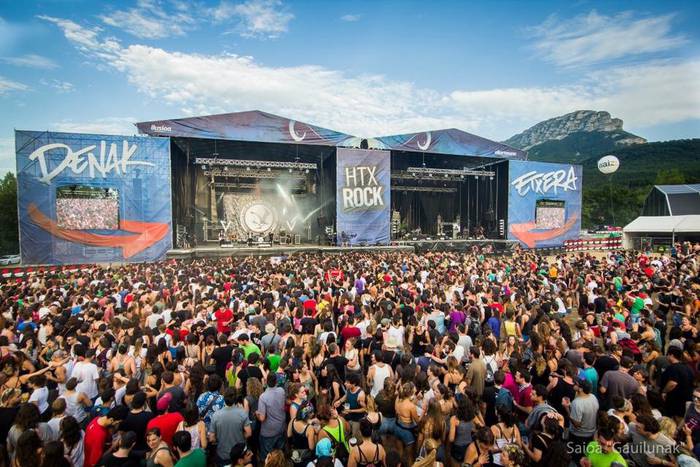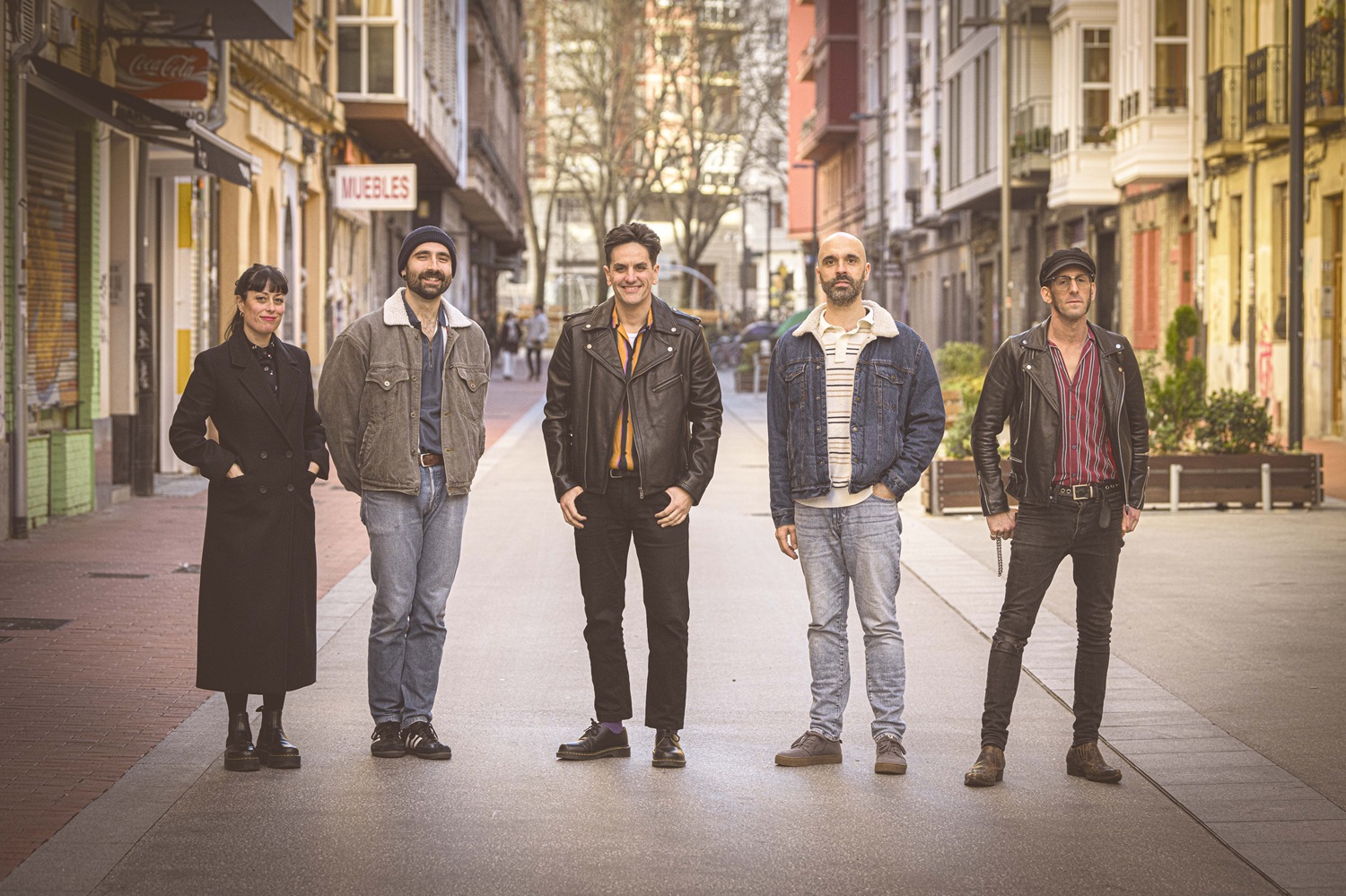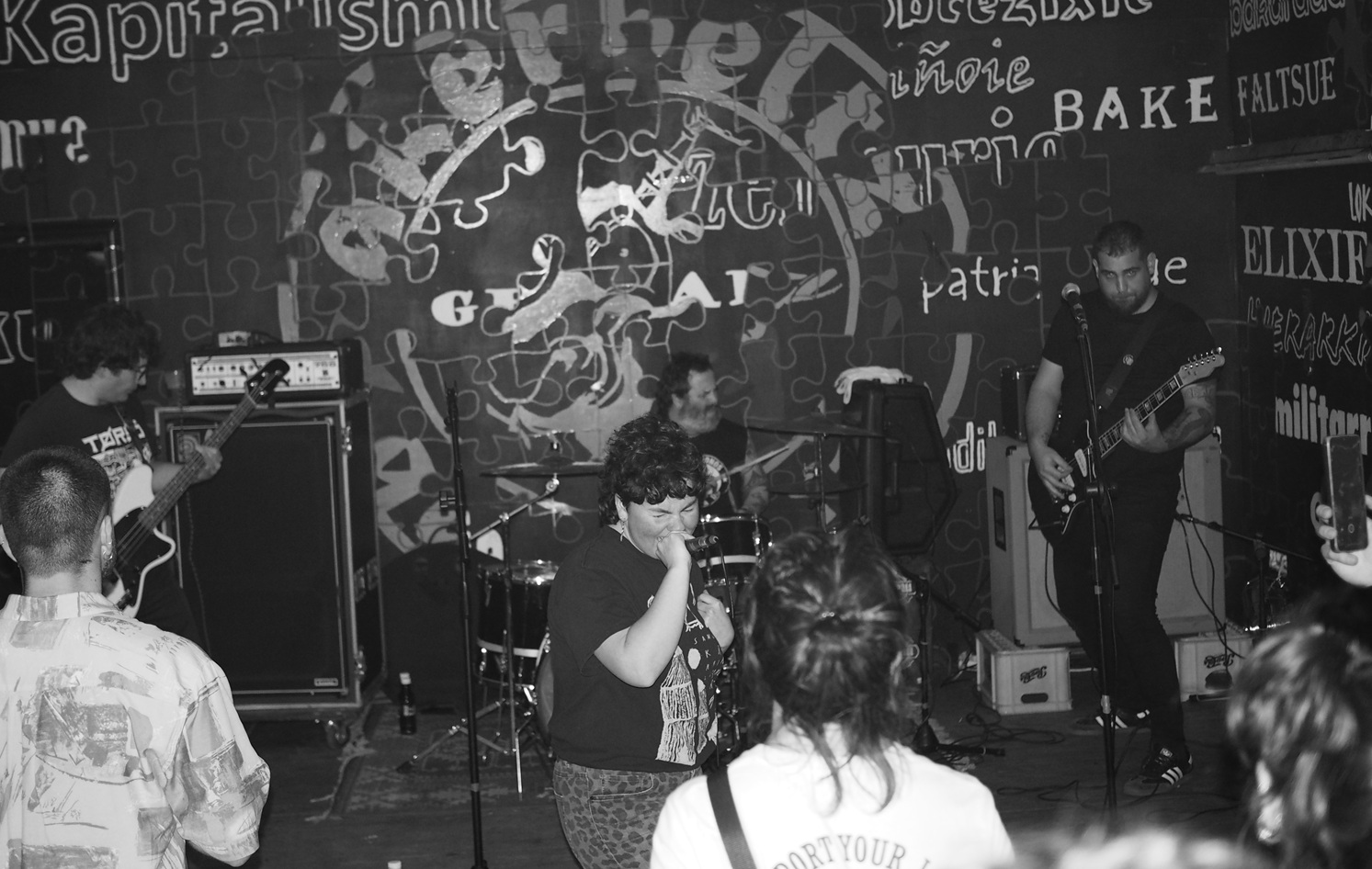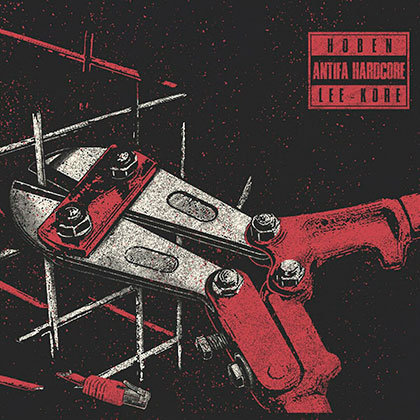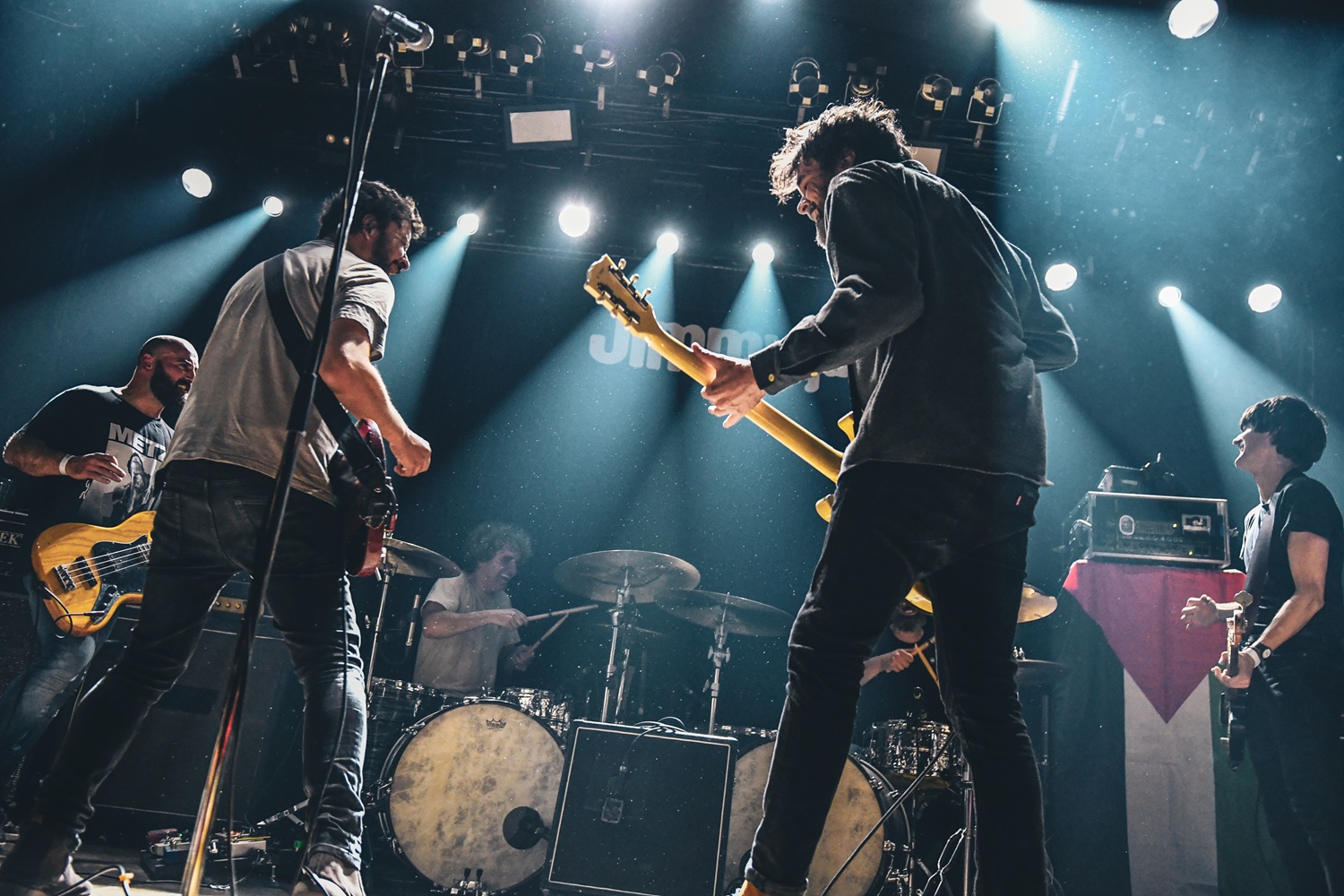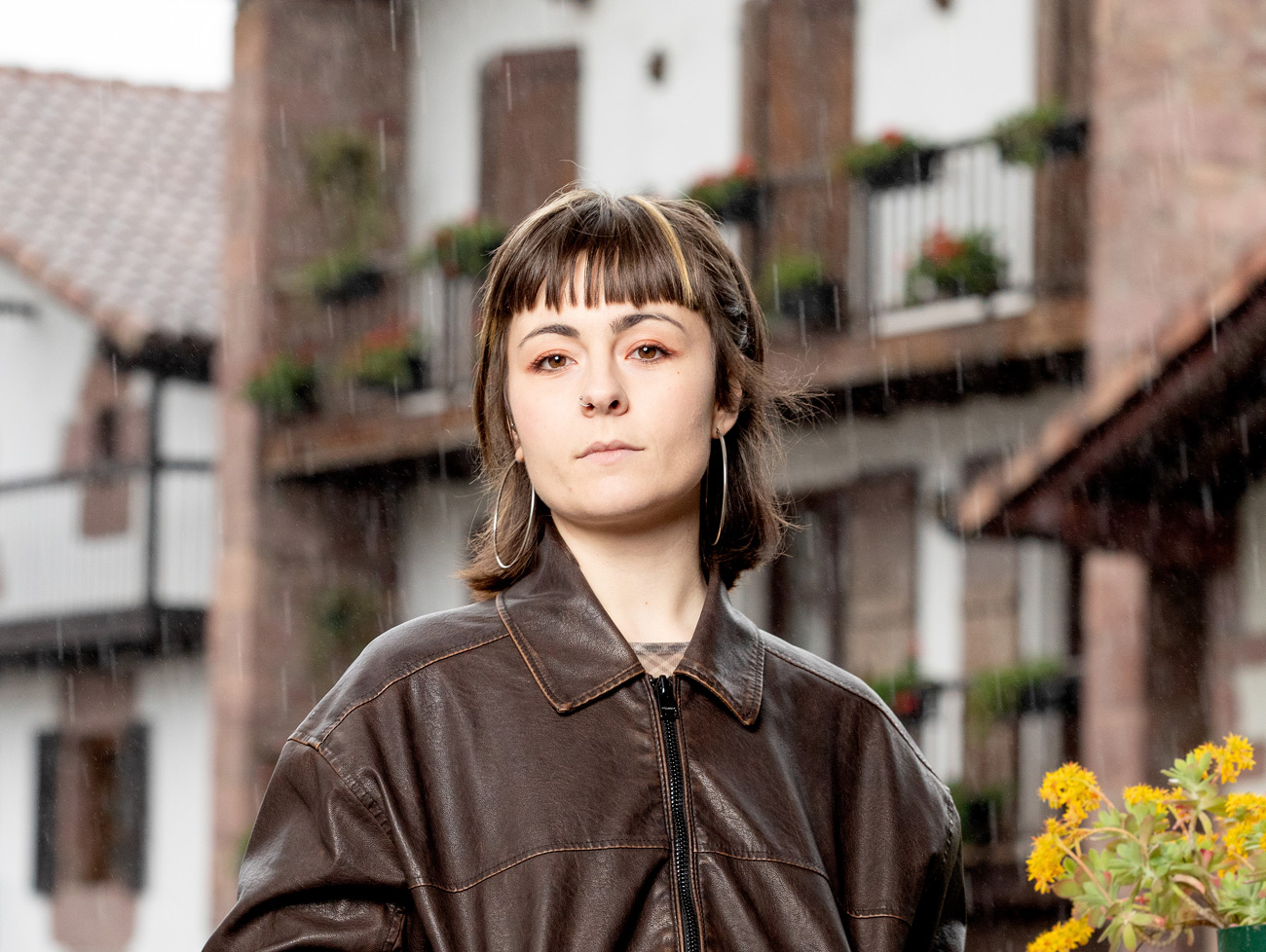"Doing things yourself is beautiful."
- My Heart Your Mouth (MHYM) is a self-managed group of hardcore-emo-punk in Barcelona. They are based on the Zuk-Zen-Egin philosophy (DIY) and organize concerts, recordings, tours... all year round, and their most important festival is the Emostiu festival, which this year is held from 21 to 22 July in the Poblenou neighborhood.

At the end of the two-day festival we met with two members of the collective, the cartoonist and illustrator Ariadna Vegas and the advertising and marketing student Marta Merino. We talked to them about the collective, self-management, the festival and the organization of things with friends.
Where did the idea of creating My Heart Your Mouth come from? How did they start?
Marta: The pandemic came later, because in Barcelona there was a big punk and hardcore scene, and we didn't give the scene, we got together some friends and we thought organizing something was going to be great. So we organized the first Emostiu in Casala, with restrictions yet. It was great and we chose to continue organizing. To this end, it seemed necessary to create a collective and organize concerts for the self-financing of the project and the organization of Emostio ever better, contacts outside Spain and external groups.
How many members are you in the collective?
Ariadna: It is difficult to answer because we are quite a few people in the assembly, but not everyone is involved all the time, it is done as far as possible and whatever you want. We are now ten members of the committee and then we have several “satellites” that help the people around us, both management and “workforce” at specific times, or cleaning up after coming to the concert.
Are there special reasons to do so in the Poblenou neighbourhood? Are they from here or are they from space?
A: Nobody is a neighbor, but this place we like it so much for its own room and for the good musical equipment as for the functioning of space. It is a self-managed space organized around different collectives and is the best way to function for us.
M: A place accessible to all.
A: We are not obliged to collect the entrance, neither the light nor the room. If we lose something is because we have managed it badly, the space is not closed. If we had a room that was fully self-managed and self-funded, we would have lockdown pressure, and not here. That's a treat.
Space is self-managed, but not occupied?
A: It's not busy, it's self-managed but not self-funded. Do I explain?
Yes, explain.
A: This is owned by the City Hall, a Casal de Joves that emerged in Catalonia in the 1980s to provide an alternative to the "drive" of juvenile heroin. The Government was clear that it was necessary to give young people ways of doing things so as not to fall into such a destructive drug. So these spaces emerged. It is not occupied, it is not a social center; it is a place that the city council gives to the neighborhood and is financed by the city council. There are also two employees hired. It's a very large space and besides our concerts you do more things: there comes a choir to sing, you record things, kids come from schools, there's a computer room...
M: There is also a serial collective.
A: Yes, and in the end, to manage all this well, we need an organization in which we all participate: Kudeaketa. Each group should have members of the Manager and decisions are made in it that are not always collective. Here you are because you like space, because you want space and the project to go well, and for that you have to manage other things. In management we are 50 people, and it's not the same degree of involvement as in the collective, because we are more people and it's rotating. Manager is the team in charge of space management.
Still talking about the neighborhood and space, is the project directed exclusively to the neighborhood or will it extend to the whole of Barcelona and other places?
A: At the moment in Poblenou we have focused a lot on the things we have done in Barcelona, we want the neighborhood a lot and now we are trying to extend it to other rooms. In Barcelona, in addition to this space, there are rooms managed by a cultural cooperative, and if you cry and explain the cultural importance of your project, you may be left in the room for free. We have also held some concert in the recently reopened Paral-lel 62 room, and we have also managed tours outside Barcelona.
M: I would say it's a young people's project, but many adults come to us. Our project is aimed at all people.
You work on self-management networks with different collectives, and more recently are emerging. The Almendros de Granada was born very recently, right?
A: Following a journey from MHYM to Granada, Pevluri and Ivani (organizers of the collective Los Almendros) were saying “you have to organize buah things”, and so it emerged; the same happened with La Carretilla, talking about self-management in a bar in Valencia. It's terrible to have a personal relationship and your friends organize things, and not to become friends of the people who organize them.
You started in 2021 and in recent years the project has increased a lot. How did you experience it?
A: Uf, this is a topic of debate within our group.
M: We started organizing concerts and more and more people arrived. How? We don't know.
A: The space is very good and the environment created is very nice, no more explanations. There are others that don't look elsewhere, that don't feel comfortable in punk environments and in masculinized, scisnormative spaces. Also our music, the ripe, that anybody likes. It is said a lot “emo ñiñi”, but anyone likes it. Anyone can attend Boys Kissing Boys concerts and all Monteperdido likes it. It is true that in recent months people have given us a great deal of hype.
M: We have done well, it has been a strategy.
A: And in the collective there are people who have learned marketing and design. Going back to the question, of course, this can become too big to manage. It can be harder to manage and follow as it has been up to now.
What objectives do you pursue with MHYM?
M: We have never sat down to agree on objectives, but I believe that after this Emostium that we have just done we will have to reflect if we are to continue working well. For me, the goal is to create an environment in which anyone feels comfortable and has fun, both in and out of space. Coming people often stay out because they create a good environment. I would say that for me there is no more important goal for people to have a good space.
Besides the concerts and festivals you organize, you have a study and a label, all self-managed and built within the philosophy Zu Egin. Why did you decide to do it this way?
A: It is best not to have to explain to anyone: no justification, no request for scholarships, no giant paperwork ... And then there's a romantic and nice part: joe, doing things yourself is beautiful. In the end, the world revolves around capitalist ethics and people estimate to have such a quiet exterior environment. That's beautiful.
It will also have negative points...
A: Everything is very difficult and very caro.El number of hours is absurd and not always settle more people entering the group. And how it's not a job, you can't demand it. This happens in all places, in all groups and in all jobs, some will put more than others, and with that you have to be comfortable.
M: We should be comfortable when one gives more and the other less. I believe that this capitalist framework does not happen.
A: There is competition in a paid job, but here the job is voluntary and you have to feel comfortable. We're all on the same boat, and if I can't do something, another one will. That's very nice.
It's a project that's outside the traditional giant big festivities. What kind of festival do you want to do?
M: From my point of view, although the festival can be extended and held in a room where 3,000 people enter, I want to continue working with the same philosophy, as the people of MDA Industries do with Bad Arts. For me, this is a model that needs to be followed: the way we work, the entrances for all people with not very high prices, the entrances for people without resources, the press ...
A: The festival I wanted to do this year. It has gone very well, the window has worked very well, the people who have come really liked it and we have not lost money. The festival I wanted to do with my friends is this. It would be nice to be able to grow 3,000 people, but at that point it could not be as self-managed as it is now.
The interview is taking place recently. A quick assessment?
A: The truth is that it has been a joy.
M: All right. I have had a very good time, and I think it has gone smoothly.
A: I'm going to throw flowers: you've noticed the hours invested, send circulars to groups, presence on social media... Sometimes you don't know if you're doing it right, because in the end we're very new and very young. Everything we do is born from a perspective of “we have no idea what we are doing” and we can have big problems, for example, if we hire donkeys, see how we get off the table. But this year everything has gone well. You've noticed the hours spent, the love and the personal bond we've created with people, even though we don't know what we're doing. But, as always, there are thousands of surprises of the last moment.
M: All the groups have touched and we have done very well, at that level everything has gone well.
New projects for the future?
A: This has increased a lot, we need more hands, more people to respond to messages ... There are others who don't want to go on in the project, which is OK, but of course, to continue with the project, we need new people. The second season, new people and some older people will become high school or cameos. We must also agree on fixed political ideals. We are going to make a political ideology, by common agreement, and be clear what manifesto we are going to follow. Then we are recording the album of the Barcelonan group La Decadencia and we will work on the publication of the album of Boobs Frias, organizing concerts of presentation or others, watching with whom to leave and with whom not...
Transparent Beings
When: April 20th.
In which: In the Plaza of the Castle of Pamplona.
-----------------------------------------------
The concert is only half an hour away in the Plaza del Castillo de Pamplona; but it is still half empty, because it is raining. Whether... [+]
Obduction of Amenaza / Zirt Zart (Split-ep)
2024
---------------------------------------------------
The musical panorama is gigantic, impassable. Among them there are a few large groups that absorb all the foci; many others that are dedicated to the pursuit of it, and... [+]
Aposapo + Mäte + Daño Dolor
When: April 5th.
In which: In the Youth Center of Markina-Xemein.
---------------------------------------------------------
I’ve made my way to the cheese house with the shopping cart full of vegetables, and we’ve spent the evening cutting... [+]
Poliorkêtês
Kerobia
Autoekoiztua, 2025
--------------------------------------------------------
Azken aldian, lerrootan asko nabil hausnartzen musikak izan beharko lukeen “misio historikoaz” eta abarrez. Eta, nolabait, zer egin beharko lukeen... [+]
On March 7, the 150th anniversary of the birth of Maurice Ravel, the best Basque composer of all time. And in LA LUZ a tribute was paid to this composer, recalling the influence of the famous Bolero on the collective imagination.
By chance, Deutsche Grammophon has just released... [+]
Olatz Salvador
Noiz: martxoaren 15ean.
Non: Deustuko jaietan.
------------------------------------------------
Martxoak beti du deustuarrontzat kolore berezia; urtero ospatzen ditugu jaiak, San Jose egunaren bueltan. Bi asteburu bete festa, eta urtetik urtera Deustuko... [+]
Antifa hardcore
Lee-Kore + Hoben
Autoekoizpena
---------------------------------------------------------
Tamalez ez da ohikoa Arrasaten hardcore kontzertuak egitea, bestelako musika eszenak nagusitzen direlako. Hala bada, joan den larunbatean herriko gazte batzuen... [+]
Hunkituta eta ilusioz egin dut Iruñetik Oronozerako bidea. Maite dut Olaia entzutea, baita hizketan ere. Herriko farmaziaren ondoan autoa utzi eta balkoitik agurtu naute hark eta bere zakur Arak. Grabagailua martxan jarri aurretik, bueltaxka egin dugu frontoira eta Arak... [+]
Bizitza eztia
Verde Prato
Plan B Records, 2024
--------------------------------------------------------------
Ousmane Sembène zinemagile senegaldar ospetsuari galdetu zioten ea bere pelikulak Europan ulertzen ote ziren. Erantzuna, epikoa: “Izan gaitezen... [+]








